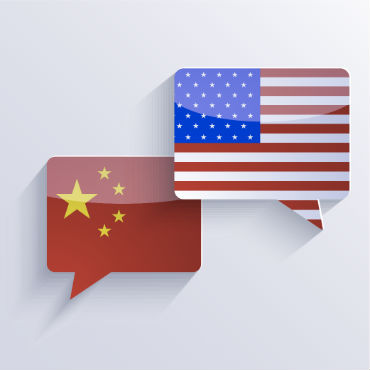A somewhat revealing rubber stamp
Steve Kelman suggests that interesting signals can be gleaned from China's "two session" proceedings.

Serious U.S. media devote a lot of attention these days to covering China. Rarely a day goes by, for example, that the New York Times doesn't have at least one story about China. Yet recently, what in China was considered a major political event occurred and got no coverage at all in the US press.
I am referring to the annual meeting of what the Chinese call the "two sessions" -- meetings of the National People's Congress, China's version of a legislature, and the Chinese People's Political Consultative Conference. Even in China, attention this year was attenuated because of two breaking-news events: the killing of almost 30 people by knife-wielding assailants in Kunming, and the saga of the missing Malaysia Airlines flight to Beijing with mostly Chinese on board. Yet the two sessions were still a big story day after day.
In the United States, the National People's Congress is usually called a "rubber stamp legislature, and the events are dismissed as a meaningless show. Yet while the two sessions are hardly gatherings marked by dramatic confrontations between legislators, or where the government risks rejection of its policies, the two sessions actually do tell us some interesting things about the Chinese political system -- both its characteristics and its evolution.
My favorite, actually, is the People's Political Consultative Conference. This body has about 2,000 delegates. Fascinatingly, they include movie stars, billionaire businessmen, and even overseas Chinese who may have lived all their lives abroad (at least one delegate was a Chinese-American). In a somewhat bizarre choice, China Daily featured a whole page of interviews with billionaire delegates. (About 2 percent of delegates are billionaires in at least Chinese currency, representing a minimum net worth about $160 million.)
This body is not even claimed to have a legislative role, as the name "consultative" implies. Many of its members come to promote single-issue causes such as wildlife protection, reminding one of Hollywood stars who testify before Congress. The presence of many well-connected people in this body shows both the cachet that comes from connections with a powerful government and the need of even private businessmen to be on the government's good side.
As for the "legislature" itself, political scientists have noted that the body has over time slowly increased its influence. The media, and supposedly the government, pay attention to the frequency with which different topics are the subjects of resolutions the delegates present. This year, for example, there were an unusual number of resolutions urging the government to take more aggressive steps to combat pollution.
Occasionally, there can be a significant number of votes – "significant" here means 5 percent -- against a government minister, and these too will often be noted in the media. The National People's Congress has also played an ongoing role in asking for, and so far to a limited extent obtaining, more transparency about what is in the government budget, which has generally been kept secret.
In all, this is still probably closer to a rubber stamp than an aggressive independent legislature, but a number of my politically interested Chinese friends said they follow "two session" proceedings. Admittedly, that is often because the proceedings are used to announce important decisions already made, rather than actually making decisions.
For me, it will be interesting to follow each year whether "two session" proceedings' independence grows or not – in particular by looking at whether something we take for granted in the West, namely an enumeration of what specifically is in the government's budget, comes to China.
NEXT STORY: Here Comes the milCloud





